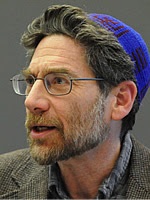Our Private and Public Selves
 Our culture has entered into a new area of struggle and controversy. We wrestle with finding the proper approach to defining our public and private selves. We are not at all sure what parts of our lives – and the lives of others – belong in the private realm and which belong in the public realm. And we have further difficulty in figuring out what that difference might mean. In what ways are our private lives to be considered differently from our public personae?
Our culture has entered into a new area of struggle and controversy. We wrestle with finding the proper approach to defining our public and private selves. We are not at all sure what parts of our lives – and the lives of others – belong in the private realm and which belong in the public realm. And we have further difficulty in figuring out what that difference might mean. In what ways are our private lives to be considered differently from our public personae?
This issue is especially highlighted through the ways that society’s celebrity class occupies our attention. Billions of dollars are expended in satisfying the public’s appetite to get into the more private, intimate aspects of public figures. (- Hm.. “The public’s appetite” – Pause for a second and ask yourself whether you think of yourself as part of “the public,” or do you see yourself as an individual, pure and simple?) But we are caught in a paradox. Our fascination with probing behind the scenes, into the private lives of the rich, beautiful, criminal, powerful, talented, etc., etc. and famous people , draws much of its zing from the definite sense we have of crossing the boundary from the public to the private, of trespassing and discovering that which was meant to be hidden.
But the line between public and private is getting blurrier and fainter all the time. For instance, the celebrity class, itself, has ballooned to huge, unprecedented proportions. This situation is fueled by the explosion of technological capabilities we now enjoy – or endure. More and more people have access to the media and to gaining public attention, if only for a moment. Public access forums such as Google, youtube and Facebook can preserve momentary phenomena well beyond their original time of currency. These media allow us to share private moments, not only with our immediate circle of friends, but with the entire plugged-in world. The line between private and public is constantly being crossed and crossed out. We may all be famous in some way, all of us immortalized by these media, whether we like it or not.
Indeed, another layer of the problem is added when this boundary crossing is not done “by us,” with some measure of personal decision, but is done “to us.” We are barraged with spam messages and cold calls day and night. We expend enormous amounts of energy and time either attempting to penetrate the defensive walls of privacy erected by others, or in shoring up our own walls against invasions from the outside. The privacy policies of social media programs change all the time, and most of us can’t understand or keep up with those changes. Our autonomy has been critically eroded. The latest outcry emerged when we found out that the government is monitoring all of us, all of the time. That outrage reflected our residual sense that we have a right to privacy, even as we continue to efface that right ourselves, all the time.
So, as I continue to look at our daily prayers in this monthly forum, I believe that the next prayer in the morning service may be meaningful. It is an extended meditation on the relationship between our private and public selves. It is introduced this way:
“A person should always have reverence for Heaven, both in private and in public, and accept the truth.”
The introduction to this ancient prayer points to our two arenas of living, the private and the public. It calls on us to have reverence for God in both spheres. This raises the question as to which sphere is more in need of this reminder. Are we more reverential in private than in public? Many of us see our spiritual, religious selves as deeply personal, reserved for our private moments and spaces, and none of anyone else’s business. We are suspicious of those who impose their own sense of God’s Will upon the public sphere. In this view reverence for God should be kept private.
But there are others who equate reverence for God with the highest values of human striving. They sadly point out that many of us act nobly only when others are watching. Thus, reverence for God works as a public motive for good, but does not influence our actions when we are in private and think we can get away with something that is not so respectable. In this view reverence for God is something we adopt only when people are looking on. We worry about what people may think of us or how people will view us, but we don’t care as much about how we should view ourselves.
The Talmud tells of the last moments of the great 1st century sage, Rabban Yohanan ben Zakkai. Before his death his disciples gathered around his bed:
His students said to him, “Our master, please bless us.”
He said to them, “May it be God’s Will that the fear of Heaven be upon you to the same degree as your fear of flesh and blood.”
They said to him, “Is that all?”
He said to them, “If only! Know that when a person sins, all s/he says is, ‘I hope no one [human] sees me!’”
(BT Berakhot 28b)
Our morning prayer urges us to adopt a values perspective that applies both in public and in private. It calls us to develop a unified theory of self. What would be the basic elements out of which we could build an authentic sense of self, a self that treasured its privacy and was not falsely influenced by public pressure? I hope we will be able to find resources to answer that question when we explore the rest of this prayer, next time.
This issue may be fruitfully pursued as part of our upcoming Passover holiday celebrations. In that spirit I wish everyone a Sweet Passover holiday!
